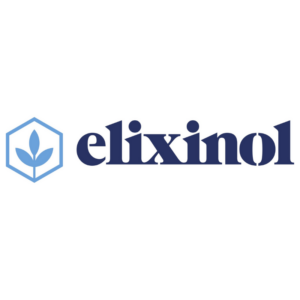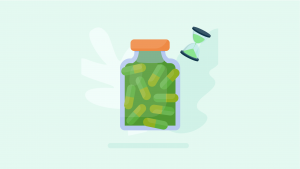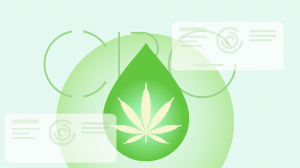
Historically, cannabis has held immense significance in Japan.
Unlike many other countries that used cannabis mostly for recreational purposes and fiber, Japan treated it as a sacred plant. Cannabis had a major role in Japanese symbolism, tradition, religion, and medicine.
Yet, despite 10,000 years of continuous use, cannabis became prohibited in Japan a few decades ago.
How did this happen?
war, politics, and international relations, of course. But times are changing in Japan once again.
Today, hemp and CBD are legal under strict rules, but Japanese citizens are finding it easier every year to find CBD supplements.
In this guide, we’ll take a brief look at the history of cannabis laws in Japan and discuss the current regulations on CBD and hemp products. Perhaps most importantly — we’ll discuss how to buy high-quality CBD products from brands that operate or ship CBD to the region.
Summary: Buying CBD in Japan
- CBD extracts and products that are THC-free and made from hemp stems are legal in Japan
- The interest in CBD in Japan is increasing steadily, and laws are expected to become friendlier in 2020 and beyond
- Refrain from purchasing CBD products that contain any THC — it’s prohibited and severely punished by Japanese officials
- You can shop for CBD in local stores, or you can order online if you live in Japan
- You can use a mail forwarding service to buy from international brands that don’t ship to Japan
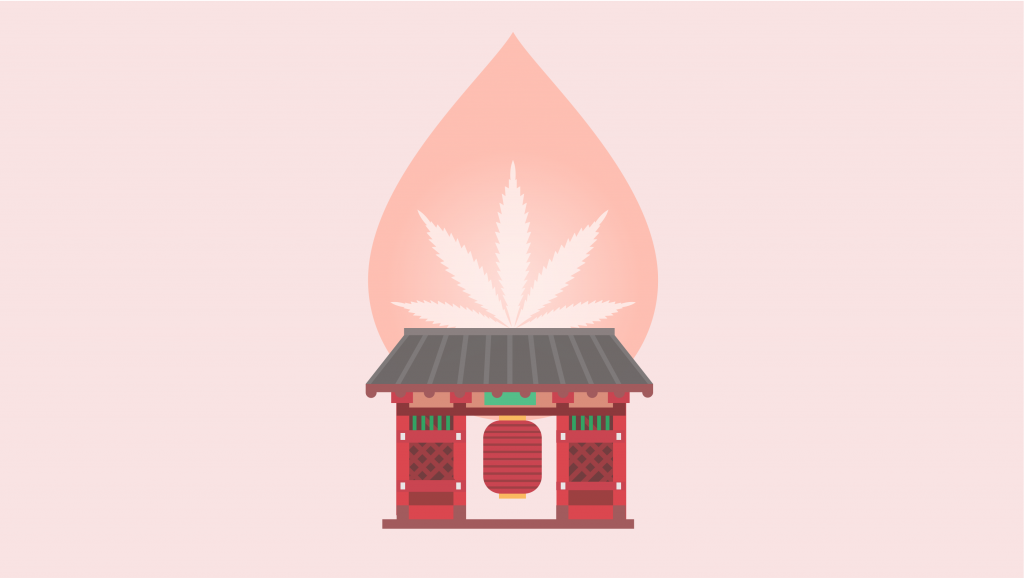
Best CBD Oils in Japan
| Number | Product | Total CBD | Potency | Cost per mg CBD | Link |
|---|---|---|---|---|---|
|
1 |

Ananda Hemp Broad-Spectrum Zero THC CBD Oil |
600 mg |
20 mg/mL |
$0.14 |
|
|
2 |

Elixinol CBD Oil Liposomes |
300 – 1000 mg |
10 mg/mL |
$0.13 – $0.20 |
|
|
3 |

Medterra Isolate CBD Oil |
500 – 3000 mg |
16 – 100 mg/mL |
$0.04 – $0.07 |
|
|
4 |

Formula Swiss CBD Oil |
300 – 2500 mg |
30 – 250 mg/mL |
€0.06 – €0.08 |
|
|
5 |

Reakiro CBD Oil |
300 – 1500 mg |
30 – 150 mg/mL |
€0.07 – €0.08 |
|
|
6 |

Hemp Bombs CBD Oil |
300 – 4000 mg |
10 – 133.3 mg/mL |
$0.07 – $0.17 |
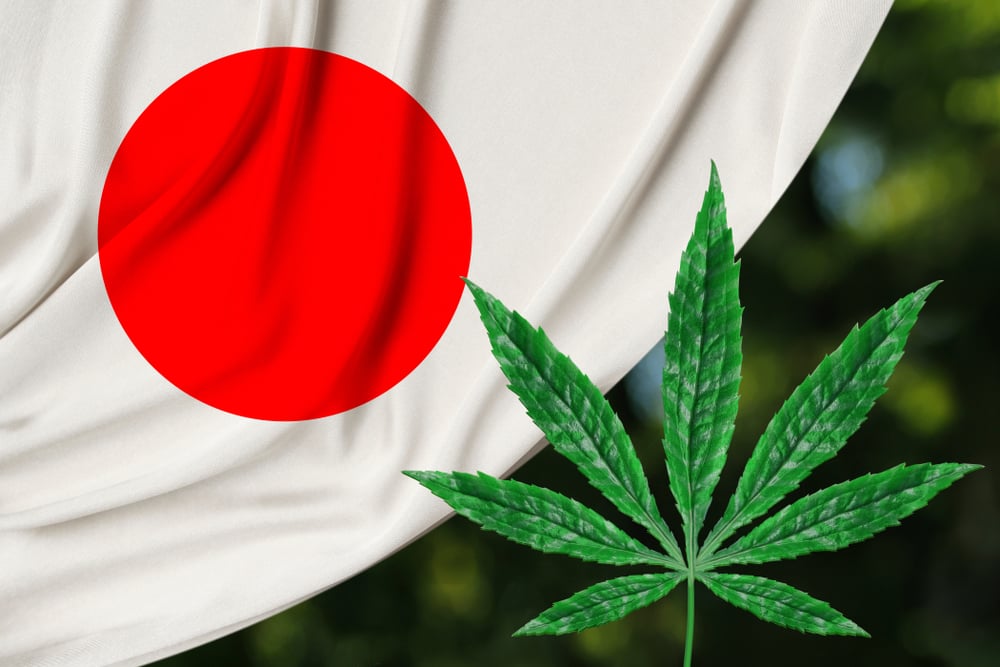
A Brief History of Cannabis Laws in Japan
The history of cannabis in Japan begins in 10,000 BCE. The first findings were seeds and woven fibers used for clothes, food, bowstrings, and fishing nets and lines.
Hemp was of great importance to prehistoric Japanese people, and it’s mentioned in the most famous collection of poems — the Manyoshu (8th century).
Besides its many uses, the plant was also a symbol of strength and persistence. The Japanese would often tell their kids about hemp’s ability to grow tall and strong, encouraging them to do the same and to persist no matter what.
The popularity of this symbolism led to the creation of Asa-no-ha, a fabric made from cannabis leaves used for children’s clothes in the 18th century.
The Japanese also used hemp fiber for building shrines. There was a strong belief that cannabis is a sacred plant inhabited by the gods. Priests would use cannabis leaves to expel evil spirits and to bring purity in the shrines.
What’s interesting about cannabis’ history in Japan is that there’s no evidence of people smoking cannabis, but many documents confirm cannabis use in medicine. Various medicinal books and old ads from the 20th century demonstrate people treating muscle pain, asthma, allergies, and insomnia with cannabis.
During the Second World War, the Japanese military forces needed rope and cord for the ships and parachutes. When Imperial Japan surrendered in 1945, the US entered the country and took control over many government policies — including Japan’s agriculture. Shortly after the occupation, the US government imposed cannabis prohibition.
Although the ban was to “protect the public from drugs,” some history and economy experts believe that America intended to close the well-developed Japanese cannabis industry to open the doors to new American artificial materials.
With the implementation of the Cannabis Control Act (1948), Japan’s cannabis farms were nearly wiped out, leaving many farmers deprived of their right to grow cannabis for their survival.
Today, low-THC hemp is grown mostly for fiber, food, and CBD extracts, while marijuana is strictly prohibited with severe penalties for those using or possessing it.
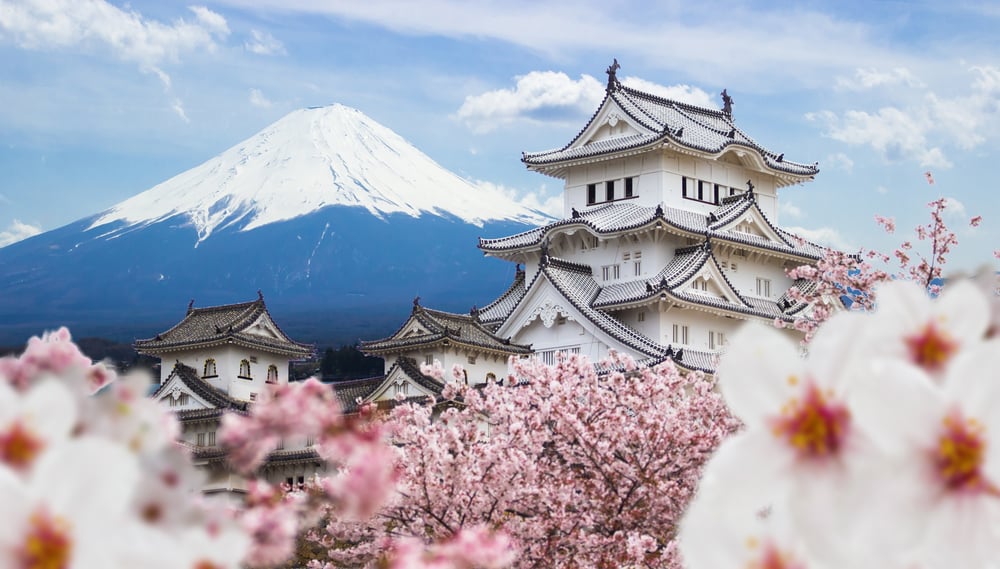
Why Is It Important to Differentiate Hemp from Marijuana?
After being used for centuries throughout the world, hemp became plant-enemy number one for many governments in the 20th century. But what led to this?
Hemp and marijuana are both cannabis plants, but they have one key difference — their THC concentration.
THC is the primary psychoactive compound of cannabis, and while highly concentrated in marijuana, it’s found in exceptionally small amounts in hemp plants — which means hemp can’t get you high.
In most of the countries, marijuana is considered any Cannabis sativa with more than 0.3% THC (0.2% in Europe). Any plants that contain 0.3% THC or less is considered hemp instead.
However, Japan’s Cannabis Control Act focuses on the plant’s parts, regardless of the THC content. The act prohibits the use of cannabis leaves and flowers but excludes the seeds and the stem. This is because even marijuana plants don’t produce psychoactive concentrations of THC in the stems.
Cannabis products made from hemp stems or seeds that don’t contain ANY THC is legal for purchase without a prescription in Japan.
You’re not allowed to use recreational cannabis products in Japan. If you get caught with any amount, you will receive a severe penalty.
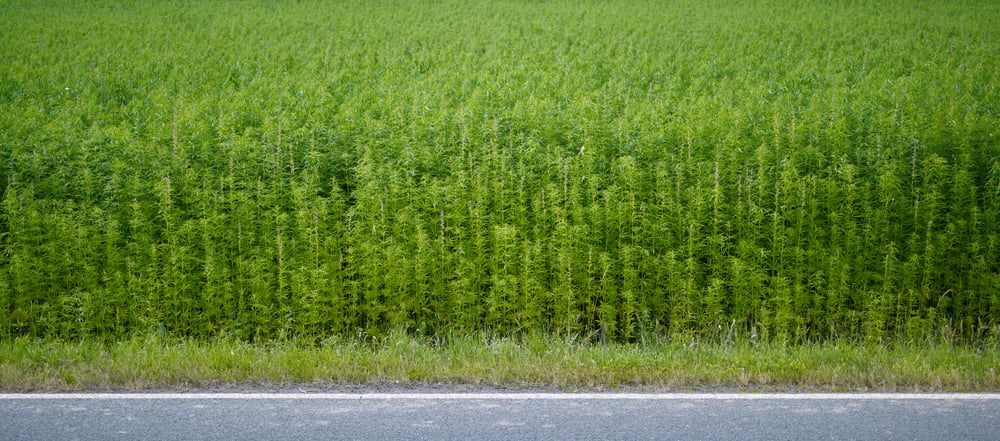
Is CBD Legal in Japan?
Japan is one of the most ambitious players on the Asian market — CBD is unrestricted and available at airports, cafés, restaurants, beauty shops, and pop up stores. However, THC is still illegal, and CBD products must be 100% free from the psychoactive compound.
Although quite liberal in comparison with the other Asian countries, Japan applies strict rules on CBD. Besides the ban on THC, CBD can be extracted only from the hemp stems, but there’s a silver lining — the law doesn’t mention an upper limit on CBD in these products.
The principles of integrity are deeply rooted in Japanese tradition, and laws around CBD require companies to implement meticulous quality and safety standards. This is an on-point advantage for you as a buyer because you can indulge in high-quality CBD products such as CBD cosmetics, food and beverages, topicals, vape juices, and oils. The Japanese government takes steps to protect CBD users by making sure companies are following the rules.
The same can’t be said for CBD companies operating in the United States of Europe, where the industry is a bit of a wild west.
In summary, CBD products are legal in Japan as long as they’re made from cannabis stems or seeds, and don’t contain any measurable levels of THC.

How to Buy CBD Products in Japan (Legally)
CBD is not a brand-new concept in Japan — it’s been slowly progressing into the mainstream over the last few years. There are fortunately a few different ways you can buy CBD products in Japan.
The rapid market growth and the high demand for CBD indicate that low-THC CBD could be legalized soon. However, it’s best to abide by the current laws when shopping for CBD, so you don’t fall into any trouble.
Japan is not as restrictive as you may assume — you can shop for CBD isolate products and broad-spectrum CBD both in-store and online.
Many countries that apply strict rules prohibit CBD imports, but Japan’s officials didn’t want to create an oppressive market. Instead, the government allows experienced foreign brands to introduce their CBD products on the market, following the country’s rules.
The best place to buy CBD products in Japan at the moment is online. Here you can shop from hundreds of different suppliers and have your products shipped to your address in Japan.
Alternatively, you can purchase CBD products at various local shops and stalls in Japan.
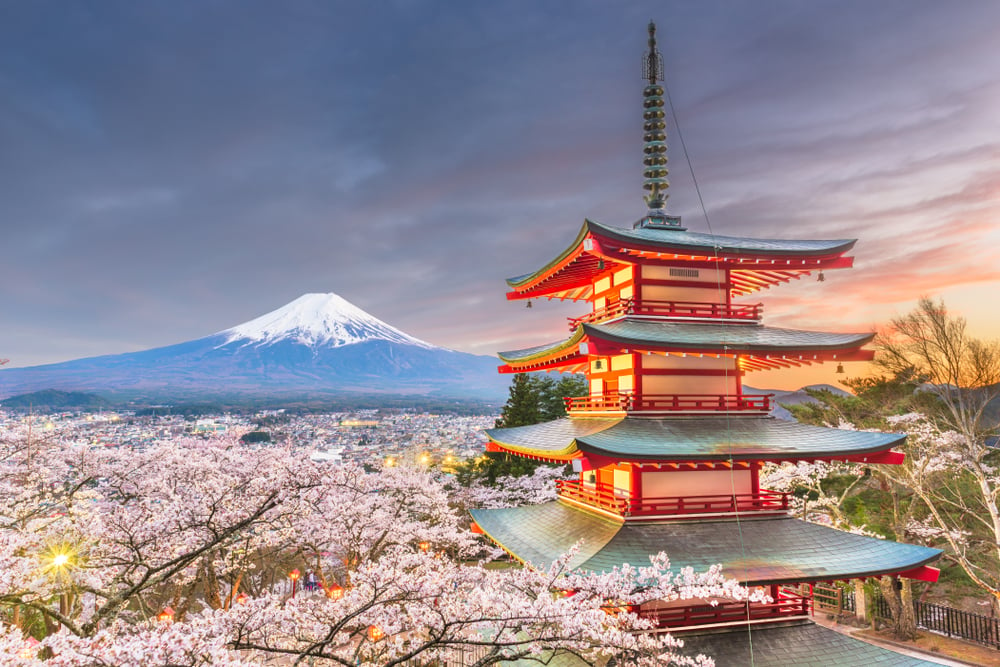
Buying CBD Online in Japan
If you do a little research, you’ll find many decent brands selling high-quality CBD on the Japanese market.
It seems that both online and local stores have found their customers — The Japanese love to shop for CBD online, and they also enjoy spending time at local cafés savoring different CBD-infused drinks and sweets.
When it comes to buying CBD oils, topicals, and beauty and wellness products, it’s best to shop at online stores. Online, you can choose from various domestic and foreign brands.
If you’re buying CBD from a foreign brand, ask the retailer about the ingredients and THC content in the CBD extract used.
You’re not allowed to buy CBD with THC or CBD extracted from hemp flowers or leaves. If you do so, customs will seize your product — you risk prosecution if you get caught importing a product with THC.
Other than this legal matter, you shouldn’t bump into any serious obstacles. Buying CBD online is convenient because you can choose from thousands of products sold at an affordable price, and you can shop at your convenience.
If you read through local magazines and websites, you’ll notice that many suggest shopping from Japanese brands. This may sound “patriotic,” but it has nothing to do with it. It’s sensible advice — domestic brands produce CBD abiding by the local rules.
On the other hand, foreign companies create products that can satisfy the international market, and a large portion of their goods contain traces of THC or CBD extracted from hemp flowers.
Don’t get discouraged — there are foreign brands that produce top-notch CBD products intended for strict markets like the Japanese.
Some brands, however, won’t ship their products to Japan, but you can use a mail forwarding service to get around this. We’ll clarify how mail forwarding works a little bit later.
Advantages & Disadvantages of Buying CBD Online in Japan
| Advantages | Disadvantages |
|---|---|
|
|
Tips on Buying High-Quality CBD Products in Japan
There are thousands of CBD products to choose from, but not everything is safe. Even in the most regulated markets like the Japanese, you can spend your money on a low-quality CBD if you’re not careful.
There are several factors that you should consider when shopping for CBD. Let’s take a look at the most important ones.
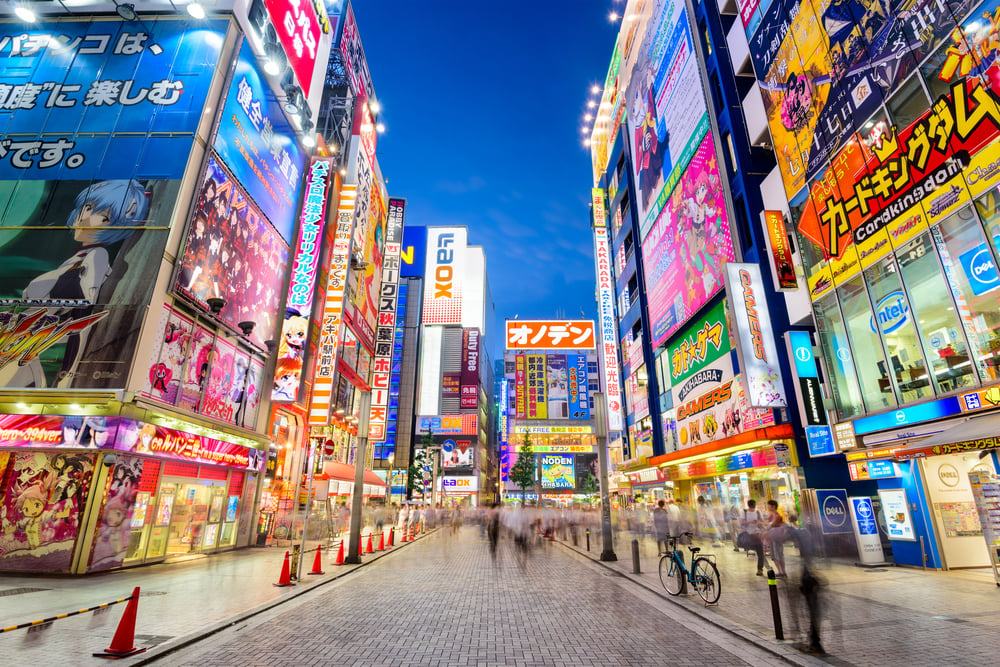
1. Consider If There’s Any THC in the CBD Product
The Japanese law doesn’t tolerate THC under any circumstances, and you should always shop for either CBD isolate products or broad-spectrum CBD.
Pay attention to this when you’re shopping for CBD in a foreign country. Most brands that sell worldwide have CBD products with low amounts of THC. Opt for their 100% THC-free CBD.
2. Ask About the Origin of CBD
If you were buying CBD somewhere in Europe or North America, your only worry would be the origin of hemp. The environment where hemp is grown affects the quality of CBD.
However, when shopping in Japan, you shouldn’t forget that you can purchase only CBD that’s extracted from hemp stems. Besides the hemp quality, you should consider what parts of the plant were used for the extraction. Never pay for your CBD before the seller ensures you it’s legal in your country.
3. Stay Away From CBD Products With Exaggerated Health Claims
CBD is known for having many benefits, but it’s not a cure for all ills. Some companies might try to sell it to you as such just to earn some quick cash. If a CBD product sounds too good to be true, it probably is.
4. Buy CBD From Reputable Brands
CBD’s popularity brings many new brands to the market. However, it’s best not to buy from a brand that still hasn’t established its reputation, because you can never be sure of their products’ purity.
On the other hand, brands that have been present on the market longer tend to fulfill their customers’ expectations. Reputable brands care for consistency, and they wouldn’t risk selling you CBD of questionable quality.
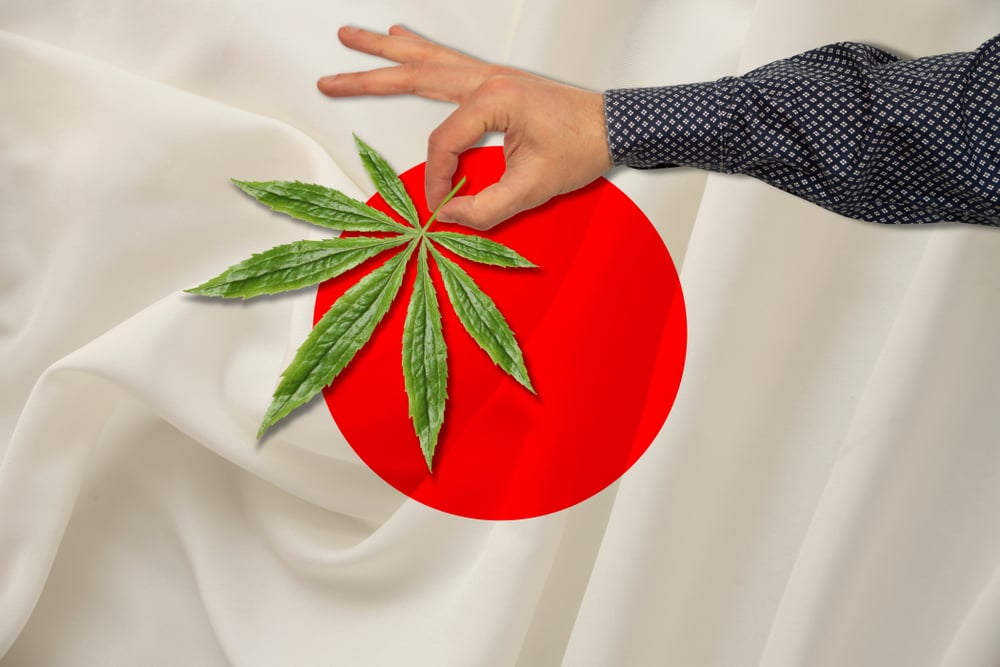
How Mail Forwarding Works
Mail forwarding companies can provide you with a local address in the region where you want to shop for CBD.
You may wonder how this is useful to you. Well, it’s simple — some brands may decide that they can’t ship CBD to your country, and your only option is to use a mail forwarding service to get ahold of this product.
The mail forwarding company will receive your parcel at a warehouse and redirect it to your home address.
Learn more about using mail forwarding CBD oil to Japan.
CBD Brands That Operate or Ship to Japan
HealthyTOKYO

Ananda Hemp

Use the code DAILYCBD to save 10% at checkout
Elixinol
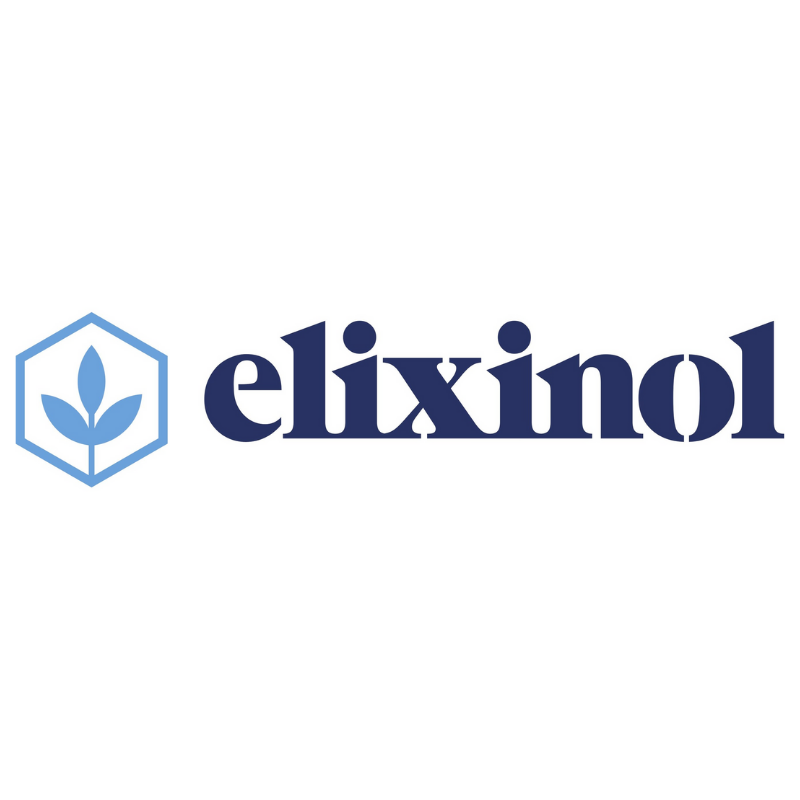
Medterra

Formula Swiss

Reakiro CBD
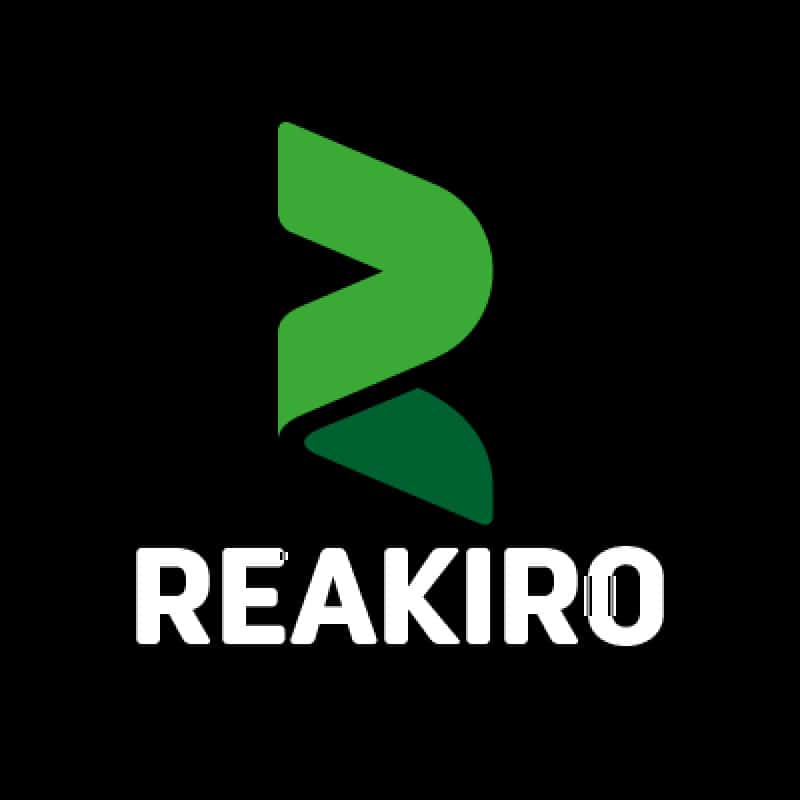
Hemp Bombs

Final Thoughts on Buying CBD in Japan
Japan’s CBD market has immense potential, and if we exclude the restrictions on hemp’s parts, it would become one of the most versatile markets, too. You can browse thousands of CBD products both online and in-store.
THC is illegal in Japan, so you’re limited to CBD isolate products or broad-spectrum CBD. Another thing that you should be careful about when making orders is the origin of your CBD — as long as you’re buying CBD extracted from hemp stems, you’re good to go.
Japan is fast-forwarding through the market changes, and we expect even friendlier rules in the near future.
We’ll update you about any new changes as soon as we hear about them — so make sure to sign up for our newsletter below to stay up to date. Until then, stay safe and shop smartly.
We wish you a happy CBD journey!


